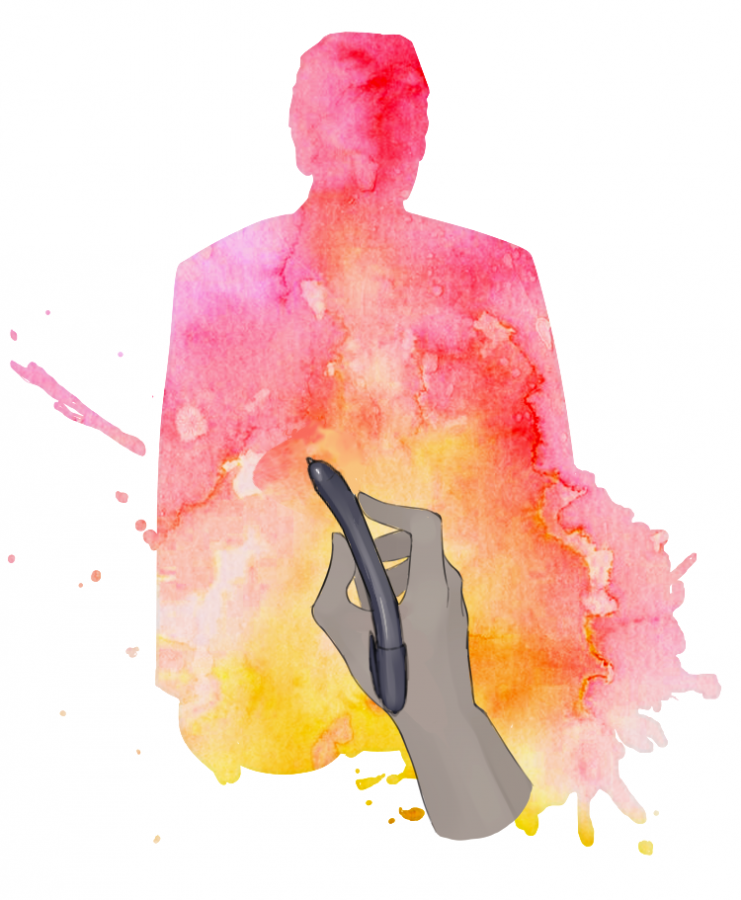It’s mourning again in America.
Every generation has a moment defined by the pain left in its wake. Our parents survived the administrations of Richard Nixon and George W. Bush. Most of us grew up as our country went to war twice and went through the worst economic decline since the Great Depression.
Now, as we enter the working world, it’s our turn — and we too will survive, because we must and always have. The question we have to answer is what role we will all play over the next four years.
Donald Trump successfully completed an uphill battle he never should have been part of. He will be the 44th white man to serve as president of the United States, a feat he pulled off by securing 58 percent of white voters. Every other racial demographic was at least 65 percent in support of Democratic candidate Hillary Clinton, including 85 percent of black voters. Such a clear racial divide in 2016 should be alarming, especially considering Ku Klux Klan members loudly count themselves as part of Trump’s coalition.
But some of you find that, and the consequences of your vote, funny. Some of you laugh when confronted with tearful people expressing fear because their skin is dark or because they wear a hijab or because their identity doesn’t fit into any census options currently available. You patronizingly call their pain and fear “saltiness” and complain about sensitivity, ignoring just how often all of these people have had that sensitivity tested. Fear is trivial to you because you’ve never felt it. For that matter, neither have I. That’s our privilege, and you have turned that into an affront to human decency.
Maybe every Trump supporter isn’t racist. But they are indisputably joined by many people who are. Maybe every supporter isn’t sexist. But they supported a candidate who indisputably is. And maybe every Trump supporter isn’t homophobic. But they just elected a vice president who believes in cutting AIDS research in favor of institutions that work to change individuals’ sexual orientation —which have, historically, supported mental torture dedicated to the suppression of sexual identity through electrocution.
There are more bigots in the world happy with this election’s outcome than there are sensible, empathetic people. Maybe you’re not one of them, but that’s simply appalling.
Yet I’ve been at a loss for words since a majority of America officially went red. My role at The Pitt News, to this point, has been to offer an outlet for student voices and help my peers share their insights with the world. As an opinions editor, I have the privilege of writing editorials that represent the opinions of my coworkers, almost all of whom work harder than I do. I make judgements about the world based on the information available to me, hoping to illuminate overlooked factors and provide context.
My function on this campus is to write and edit stories, but I feel like my mind has been wiped. In the days leading up to Election Day, I was certain Clinton would win. But I, along with most of the media world, was wrong.
I can only describe my personal reaction to this as a crisis of conscience. For as long as I can remember, my life has revolved around politics. One of the earliest memories I have is of my pre-kindergarten class’ mock election — I voted for Bush because he shares my mom’s maiden name. In middle school, I’d watch CNN with my grandfather for hours until my mom came home from work. I read news and political theory books throughout my adolescence and my time so far in college.
Those experiences didn’t save me from getting this — the biggest political moment in my lifetime — completely wrong. And all I have to show for it is this column.
What was the point of all of this? Why was I not out volunteering for a cause I believe in? Am I so obsessed with my own ideas that I needed to share them more than contribute to the communities around me? Who even reads these things? I have never felt so simultaneously guilty and helpless, and, like so many others, I’m searching for personal meaning in what happened Tuesday night.
Since joining the Opinions section at The Pitt News, I’ve criticized both parties under my own byline and as the organization’s voice. As an editor, I’ve hired conservative writers because they have an equally valid place in our campus dialogue. Our staff is as ideologically balanced as I can make it. And last month, myself and two fellow editors sat on a panel in a room full of campus conservatives, who spent an hour and a half berating us with demands that we defend the entire media industry against claims of bias.
I can say wholeheartedly that I’ve done my best to make Pitt a more intellectually diverse and outspoken community. I don’t know if I’ve succeeded at all, but I care because this is a goal worth fulfilling.
For all of the writing and arguing I’ve done, I’m reminded that what I do is its own kind of privilege. For now, I don’t need to fear jail time for an idea I express. I get paid to express myself. Still, the role of a commentator has never made less sense. People hardly know where to turn for accurate information, because pundits pretend to be journalists and political actors like Donna Brazile pretend to be pundits.
We’ve overanalyzed things and overlooked plenty of others, and lost confidence is the price we pay. I’m just a single voice in modern America’s loudest, most convoluted discourse. And for the first time, I’m not sure what that means.
Matt Moret is a Contributing Editor for The Pitt News. He primarily writes about politics and rhetoric.
Write to Matt at [email protected]


